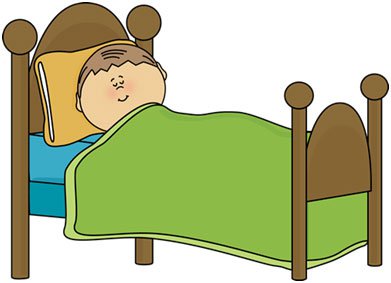Как правильно учить английские слова
Прочитав статью ниже, вы сможете поймать двух зайцев! Во-первых, отработать статью из английской газеты, познакомиться с новыми словами по теме изучения иностранных языков. Во-вторых, поразмышлять над той научной информацией, которая написана в статье о том, как проще запоминаются слова. Несмотря на то, что в статье описывается результаты исследований в английских школах о том, как английские школьники лучше запоминают новые слова, все эти рекомендации и алгоритмы подходят при изучении иностранных языков, как для детей так и для взрослых.
A good night's sleep really does boost memory: Tests show children taught new words remember them better the next day
LEVEL B2

Nothing beats a good night's sleep for helping youngsters learn new words, new research has revealed.
A study suggests that even the brightest children remember words best when they're given a chance to sleep on it.
Expanding the vocabulary of children by telling them new words and what they mean has long been regarded as vital to helping them learn to communicate.
But the new findings - that sleep provides a 'memory boost' - could help teachers tackle increasingly diagnosed problems like autism and dyslexia.
It had been assumed that children were much more astute than adults at picking up and remembering new sounds because they are still developing their language skills.
But the study of primary school pupils aged seven to 12 shows they are just as likely to be as absent-minded as their parents, with results showing children who master words over breakfast may have forgotten half by tea-time.
However, the research found the amnesia is only temporary. After a 12 hour break - provided it includes sleep - they recall more of the new words.
The study suggests that, just like tired adults, it takes a while for some things to sink in.
Academics from York and Sheffield Hallam universities spent weeks coaching 53 pupils in language skills.
Some were given the new words in the morning and tested on them the same day 12 hours later, by which time many had forgotten most of what they had learned.
But those given the words in the evening and asked to recall them the following morning did much better. Equally, those taught and tested in the same day who forgot the new vocabulary also found the words came back to them after a night’s sleep.
Words can get muddled up in the mind because they sound similar to others, the researchers said, but sleep cures this as well.
'Previous studies of toddlers assume word learning happens straightaway but the new findings suggest it takes longer,' Dr Weighall added.
'Our research shows when you learn a list of words and are tested after you have slept you remember much more than if tested the same day,' she said.
However, the research provides no excuse for catching 40 winks before school's out.
'Nodding off in lessons is definitely not good - because you would miss learning information in the first place,' said Dr Weighall.
|
Exercise 1. Find the equivalents in the text to the vocabulary below. Check with the Answer Key. |
- Acute, penetrating
- Obtained results
- There is nothing better than
- Mix up
- Snooze
- Very important
- become well-known
- study
- give time to your thoughts
- 1- astute; 2-findings; 3- Nothing beats it; 4-muddl up; 5-catch 40winks/nod off; 6- vital; 7-sink in; 8- to master; 9- to sleep on it.
Полный текст статьи можно прочитать на вебсайте британской газеты DailyMail
Вернуться к списку газет
